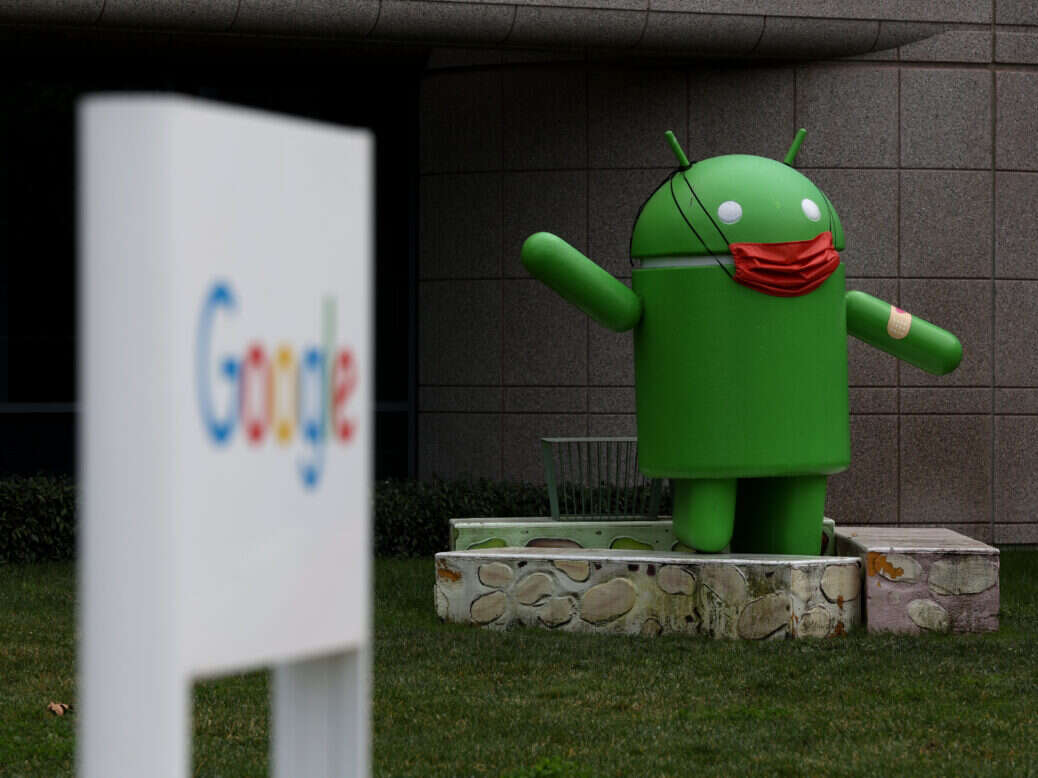
Google’s plan to limit third-party data tracking in its Chrome browser will now also extend to apps on smartphones using the Android operating system.
The tech giant’s announcement has left the market with the impression that its “conduct will once again leave it with exclusive control over the monetisation of media owner properties and apps on Android,” according to the Movement for an Open Web [MOW] group whose members include publishers and advertisers.
Google said last week it is extending its Privacy Sandbox project to ditch third-party cookies on Android, meaning “more private advertising solutions”.
“Specifically, these solutions will limit sharing of user data with third parties and operate without cross-app identifiers, including advertising ID,” Anthony Chavez, Google’s VP for product management, Android security and privacy, said.
“We’re also exploring technologies that reduce the potential for covert data collection, including safer ways for apps to integrate with advertising SDKs [software development kits].”
Android is by far the biggest mobile operating system in the world, with a 70% market share compared to 29% for Apple’s iOS, according to Stat Counter.
[Read more: Google gives UK watchdog final say on removal of third-party cookies]
Last month Google revealed its latest Privacy Sandbox proposal would be interest-based advertising system Topics, replacing the Federation Learning of Cohorts (FLoC) proposal which would have clustered users into groups.
It was met with a mixed response. MOW director James Rosewell said it was very similar to FLoC and was “another attempt to force [publishers] to use the Google walled garden.” Other ad executives felt it was a “step in the right direction” but lacked the necessary audience data for publishers.
MOW said the Android announcement “reinforces the threat” inherent in removing third-party cookies “while there is still no viable alternative”.
The Android changes, which will not come into effect for at least two years, come after Apple introduced its App Tracking Transparency update requiring app publishers to ask users’ permission to track them across other apps and websites. It means consumers can now totally opt out of sharing their data with apps.
Facebook owner Meta said Apple’s changes mean it will lose about $10bn in ad revenue this year because its business model relies so heavily on digital advertising – as do many news publishers.
However Google appeared to pledge it would try to avoid impacting ad-based businesses in the same sweeping way.
Chavez said: “We realise that other platforms have taken a different approach to ads privacy, bluntly restricting existing technologies used by developers and advertisers.
“We believe that — without first providing a privacy-preserving alternative path — such approaches can be ineffective and lead to worse outcomes for user privacy and developer businesses.”
Earlier this month Google agreed to give the UK’s Competition and Markets Authority the final say before it turns off third-party cookies, with a “standstill period” of 60 days built in for a final assessment of the threat to the market.
The legally binding commitments also “provide for scrutiny and oversight by the CMA over implementation of, and announcements relating to, Google’s Privacy Sandbox proposals,” Google’s offer stated.
MOW also noted that the CMA said in November it was “concerned that the announcements of the Privacy Sandbox Proposals have caused uncertainty in the market as to the specific alternative solutions which will be available to publishers and ad tech providers once TPCs [third-party cookies] are deprecated”.
MOW said the Android announcement “creates the very uncertainty the settlement agreement prohibits” and criticised the CMA for either not foreseeing this effect or for allowing it to happen.
“Google’s Android Sandbox announcement has seemingly already undermined the CMA’s position and Google’s commitments,” the group of publishers and advertisers added.
A CMA spokesperson told Press Gazette in response: “We have had regular and constructive communication with Google throughout our investigation and were fully aware of their intention to apply the Google Sandbox commitments to their Android platforms.
“As we have previously said we will monitor this closely and continue to engage with Google and other market participants on the nature and detail of the proposals. We look forward to engaging constructively with Movement for an Open Web and others as part of that process.”
Picture: Justin Sullivan/Getty Images
Email pged@pressgazette.co.uk to point out mistakes, provide story tips or send in a letter for publication on our "Letters Page" blog
